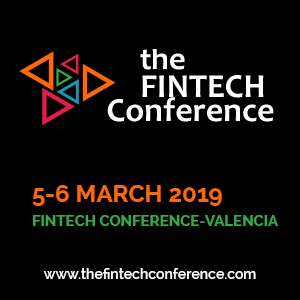Bitcoin’s popularity is proving blockchain’s usefulness in finance, but entrepreneurs have come to believe blockchain could transform many more industries. Ultimately, the use cases for a transparent, verifiable register of transaction data are practically endless — especially since blockchain operates through a decentralized platform requiring no central supervision, while still remaining resistant to fraud.
As startups use blockchain to drive greater transparency and veracity across the digital information ecosystem, they’re boosting awareness of the technology in sectors ranging from payments to public policy.
To highlight bitcoin use cases well beyond banking, the CB Insights Research Team spotlighted exciting startups in our database that are driving blockchain innovation across 30 different industries. Check out 5 of them below, and to see the full 30, check out our full research brief here.
1. BANKING
From a macro perspective, banks serve as the global storehouses and transfer hubs of value. As a digitized, secure, and tamper-proof ledger, blockchain could serve the same function, injecting enhanced accuracy and information-sharing into the financial services ecosystem.
Swiss bank UBS and UK-based Barclays are both experimenting with blockchain as a way to expedite back office functions and settlement, which some in the banking industry say could cut up to $20B in middleman costs.
Banks are among the growing number of financial services giants investing in blockchain startups such as R3 CEV, which is working with an 80+ member consortium of banks, regulators, and technology partners to develop Corda, a blockchain platform designed to be the “new operating system” for financial markets.
2. PAYMENTS AND MONEY TRANSFERS
The World Economic Forum has argued that decentralized payments technologies like bitcoin could transform the “business architecture” of money transfers, which, due to reliance on central authorities such as banks and clearinghouses, has remained static for the last 150+ years.
Blockchain could be used to create a more direct payment flow that connects payers and payees — across borders or domestically — without intermediaries, at ultra-low fees and almost instant speed.
Digital currency startup Coinbase — which has served over nine million customers as a digital platform for buying and selling bitcoin, ether, and other cryptocurrencies — recently became the first cryptocurrency company in the Global Unicorn Club.
Abra, another blockchain-enabled mobile wallet and payments startup, was recently integrated into the payments ecosystem of American Express: through a new feature, customers will be able to fund their Abra wallets using an eligible American Express Card.
3. CYBERSECURITY
Though blockchain’s ledger is public, its data communications are sent and verified using advanced cryptographic techniques — ensuring that data is coming from correct sources and that nothing is intercepted in the interim. Thus, if blockchain is more widely adopted, the probability of hacking could go down, as the cyberprotections of the technology are more robust than legacy systems.
One way blockchain reduces conventional cybersecurity risk is by simply removing the need for human intermediaries — thus lessening the threat of hacking, corruption, or human error.
Other potential applications include using blockchain to provide massive scale data authentication: for example, using its blockchain-enabled KSI (Keyless Signature Infrastructure), cybersecurity startup Guardtime tags and verifies data transactions for cryptographic assurance of their integrity and authenticity.
4. EDUCATION AND ACADEMIA
By nature, academic credentials must be universally recognized and verifiable. In both the primary/secondary schooling and university environments, verifying academic credentials remains largely a manual process (heavy on paper documentation and case-by-case checking).
Deploying blockchain solutions in education could streamline verification procedures – thus reducing fraudulent claims of un-earned educational credits.
Sony Global Education, for example, has developed a new educational platform in partnership with IBM that uses blockchain to secure and share student records, while Learning Machine, a 10-year old software startup, has collaborated with MIT Media Lab to launch of the Blockcerts toolset, which provides an open infrastructure for academic credentials on the blockchain.
5. VOTING
Elections require authentication of voters’ identity, secure record keeping to track votes, and trusted tallies to determine the winner. In the future, blockchain tools could serve as a foundational infrastructure for casting, tracking, and counting votes — potentially eliminating the need for recounts by taking voter fraud and foul play off the table.
By capturing votes as transactions through blockchain, governments and voters would have a verifiable audit trail, ensuring no votes are changed or removed and no illegitimate votes are added. One blockchain voting startup, Follow My Vote, has released the alpha version of its stake-weighted end-to-end blockchain voting solution.
To learn about 25 more industries being transformed by blockchain (and meet the startups innovating inside each sector), click here to read the full post on the CB Insights Research Portal.




































